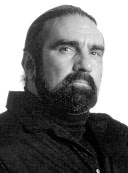- Shopping Bag ( 0 items )
-
All (153) from $1.99
-
New (15) from $4.07
-
Used (138) from $1.99





Overview
A brilliant virtuoso of violence, Richard Marcinko rose through Navy ranks to create and command one of this country's most elite and classified counterterrorist units, SEAL TEAM SIX. Now this thirty-year veteran recounts the secret missions and Special Warfare madness of his worldwide military career — and the riveting truth about the top-secret Navy SEALs.
Marcinko was almost inhumanly tough, and proved it on hair-raising missions across Vietnam and a war-torn world: blowing ...